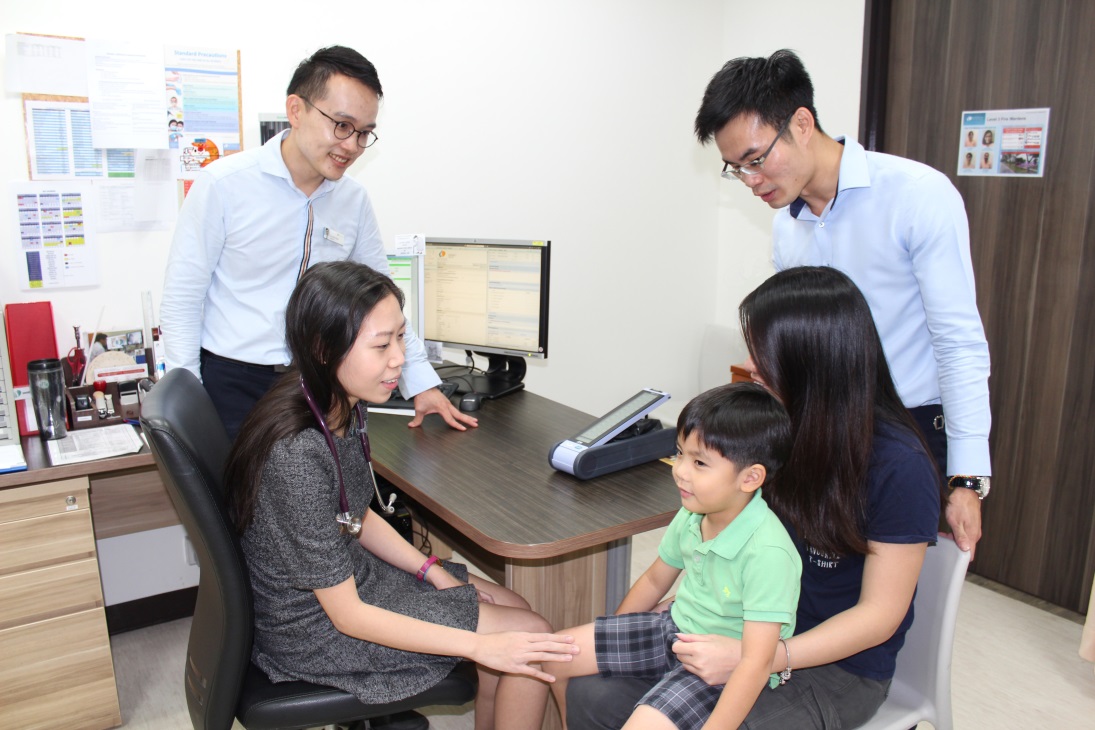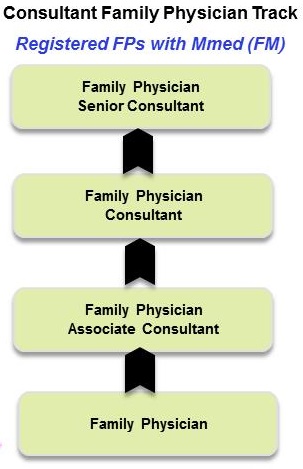Curriculum:
The 3-year training programme consists of structured clinical training and attachments, complemented by half-yearly didactic seminars (with tracks catered to the resident’s current postings) and fortnightly workshops and tutorials.
Examinations
- In-training Exams (ITE) - This is conducted annually during the residency training period.
Applied Knowledge Test (AKT): The Family Medicine Knowledge Applied Test (FM AKT) is Part 1 for the Master of Medicine (Family Medicine) (MMed FM) Examination. Inaugurated in 2023, residents may take the test in the second year of training. If residents are unsuccessful in their first try, they may attempt it again in their third year.
Rotations
General Medicine; Paediatrics Emergency; Emergency Medicine; Geriatric Medicine; Mental Health; Obstetrics and Gynaecology; General Surgery; and Orthopaedics Surgery. These clinical rotations will have a Family Medicine emphasis so that the resident acquires the knowledge and skills that will enhance his/her primary care role.
A third-year resident will also have opportunities to develop his/her leadership skills through active participation in projects for clinical improvements. He/she will also assist in the teaching of junior residents when the need arises.
Strengths of Programme
-Strong Departments within the cluster for comprehensive and broad based training - Tan Tock Seng Hospital (TTSH) and Khoo Teck Puat Hospital (KTPH) General Medicine, TTSH and KTPH Geriatric Medicine, Dermatology at National Skin Centre, Transitional care at Ang Mo Kio Thye Hwa Kwan Community Hospital and Integrated Care Hub (ICH), and many others.

Professional Development
The preparatory training comprises relevant clinical attachments/tutorials, as well as a chance to obtain[NLBI(1] sponsorship for the MMed (FM) Preparatory Course and Examination.

Apart from the important clinical role a family physician in NHGP plays, the resident also has opportunities to participate in education, research as well as administration to advance family medicine and transform primary healthcare.
Depending on the resident’s interests and passions in the area of education, he/she can contribute in the department of undergraduate and graduate medical education. This includes continuing clinical professional development of in-service fellow clinicians, fulfilling the various roles in the education arena.
Those with interest in research can undertake interesting research projects relating to primary care in the areas of Population Health and Medical Education.
Roles in administration involve the areas of clinical services such as clinical quality, medical manpower, health informatics, practice improvements efforts, and leadership appointments both in the clinics and at NHG’s headquarters.